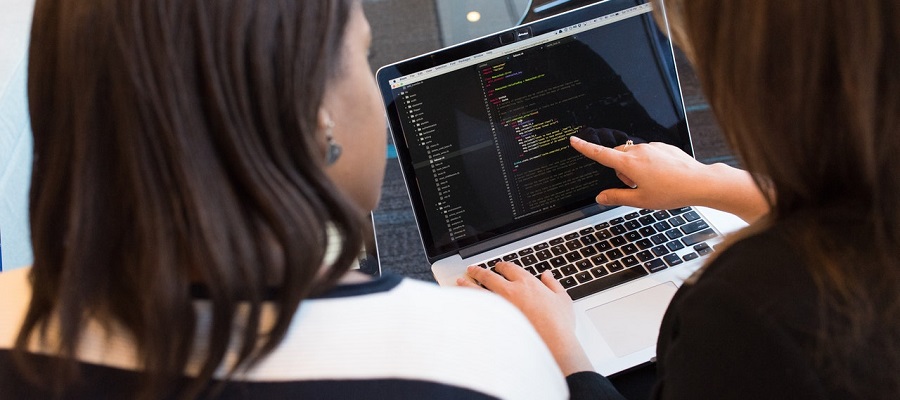What is data encryption and how does it work?

Data encryption can help ensure that your data is protected from unauthorized access, hacking, and theft. VPNs offer data encryption for home users, but what about end-to-end encryption? Is a VPN the best choice or are there other solutions? And what does data encryption even mean? Find out everything you need to know about data encryption in our guide.
What is data encryption?
Data encryption is a system that encrypts your data so that it cannot be read by others. Here is an example:
HJGkjsuZjkbd7(&)"/tg3 7836o 786397863PéJ97337()/Z()&*/(&789? No, this is not a huge typo - behind it is the sentence "What do you mean by data encryption?", which was encrypted using a simple Caesar encryption or shift cipher. Each simple letter was replaced by the letter that follows it in the alphabet. Thus, at first glance, the encrypted phrase appears to be nothing but gibberish. They cannot decrypt it if they do not know the encryption system.
Data encryption is based on the same principle. However, it makes use of much more complex encryption systems. These convert your ordinary data stored as plaintext into what is called "ciphertext" - a seemingly meaningless sequence of letters, numbers and symbols. This data can only be deciphered or decrypted with a specific decryption key.
Why should you make use of data encryption?
Data encryption is first and foremost about protecting your data from any subjects who would like to get their hands on it. This idea goes back to the long history of encrypted human communication, the use and study of which is called cryptography. Some of these encryption systems, such as the encryption technique used in the Voynich Manuscript, which dates back to the Renaissance, have not been cracked even with the help of modern computer technology.
Why is data encryption so important? In short, with the use of encryption your personal data is protected. You can make use of data encryption to protect yourself from a variety of threats, including identity theft, hacking, and fraud attempts.
Many organizations also use encryption algorithms in their network security solutions to protect against spyware and other malware. No one who somehow manages to get at encrypted data is able to read it - preventing hackers from accessing trade secrets. Thus, data encryption also provides protection against certain strains of ransomware, which are used to hijack data in order to blackmail the owner into paying a ransom by threatening to publish the respective data.
How can encryption be used to protect data?
Did you know that you make use of data encryption in almost every Internet usage? Here is a brief overview of some selected data encryption application areas that you may encounter in your everyday online life.
HTTPS encryption
Many modern websites make use of HTTPS encryption - in such cases, the URL starts with https and you will see a small lock icon in the address bar of your browser. If you take a look at your address bar now, you can see these indicators on our site as well. AVG Signal takes care of your protection.
HTTPS encryption protects your internet traffic on the way from your device to the website you are visiting and vice versa, ensuring that no one can tap into or modify this data along the way. You should never enter your sensitive personal information, such as your credit card numbers, on unsecured websites that only use the good old HTTP protocol. If you are not sure about the security of a site, it is always advisable to run a website security check first before entering any personal data.
Email encryption
Gmail and Outlook are two of the most widely used email platforms around, and both platforms encrypt emails by default. For the average user, the email encryption offered there should provide sufficient protection, but there are also more secure alternatives. Both Gmail and Outlook offer stronger encryption as part of their premium accounts. You can also use the ProtonMail email service, which is securely encrypted and available to everyone. Encryption is not the only way you can protect your email account.
Secure messaging apps
Cryptocurrency
If you've ever tried your luck in cryptocurrencies, such as Bitcoin (BTC) or Etherum (ETH), you've also enjoyed the protection of data encryption - but this is certainly nothing new for you. After all, your interest in cryptocurrencies is a testament to computer savvy. Cryptocurrencies protect your users by encrypting transactions and storing them in a shared continuous record called the blockchain. Once a transaction is added to the blockchain, it cannot be reversed or falsified.
VPNs
VPNs are a popular solution for encrypting data. You can even download a VPN to your smartphone to encrypt your data on the go. A VPN is the ideal solution to protect your data when using unsecured public Wi-Fi networks. We'll take a closer look at VPNs later in this article, but for now it's enough for you to think of them as a convenient and secure on-demand data encryption.


